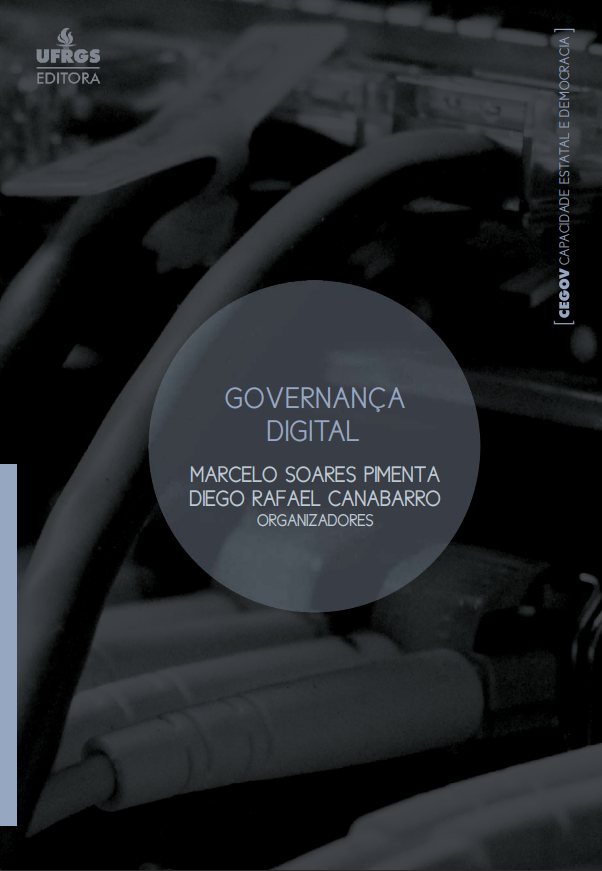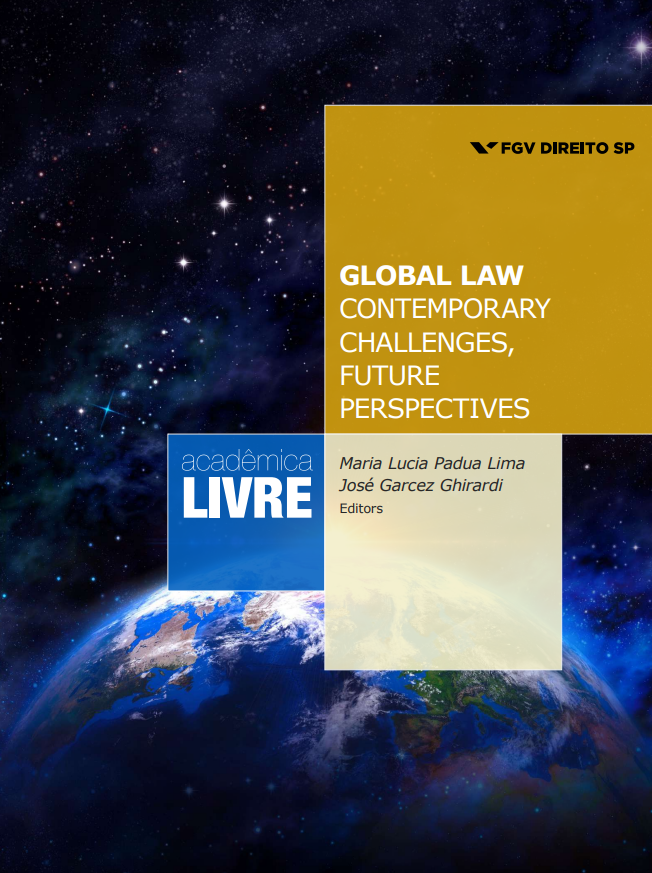
Governança Judicial: Proposta de Modelo Teórico-Metodológico
Disponível somente em PDF. Extraído da Revista de Administração Pública da Fundação Getúlio Vargas.
Resumo: "Governança judicial é um conceito multifacetado, pouco explorado na literatura, e são raros os estudos desse tema com dados empíricos que analisem as variáveis que o influenciam. Este artigo tem como objetivo propor um modelo teórico-metodológico de governança judicial, cuja aplicação futura permita a coleta de dados para descrever e avaliar a validade da relação entre os construtos e variáveis que o compõem em cada contexto. Premissas da teoria da agência e da teoria de custos de transação, dirigidas originalmente para empresas, foram transpostas para elaboração do modelo. Os procedimentos de coleta de dados incluíram análise documental e realização de 10 entrevistas. O modelo proposto inclui a sistematização de sete construtos teóricos — accountability; acessibilidade; independência; recursos e estrutura; práticas de governança; ambiente institucional; desempenho — e variáveis componentes desses construtos."
Autor(es): Luiz Akutsu e Tomás de Aquino Guimarães
Assunto: Administração Pública
Tipo de material: Artigo
ISSN: 1982-3134
Descrição física: 22 p.
Local de publicação: Rio de Janeiro
Título do periódico: Revista de Administração Pública
Volume: 49
Número: 4
Data do fascículo: jul./ago. 2015
CDD: 351

Governança Digital
Disponível somente em PDF. Extraído do Repositório Digital 'Lume' da UFRGS.
Resumo: "Teorias do Estado, um dos pilares da teoria social e política, têm ainda que abarcar e compreender a prática contemporânea em um mundo cada vez mais digital. Enquanto alguns observadores previram o definhamento do Estado-nação, é óbvio que os Estados têm, na atualidade, mais importância do que nunca, embora o seu papel e capacidade estejam mudando de forma marcante. Além disso, os eventos atuais de alcance global – do tema da vigilância e do monitoramento dos usuários até as controvérsias sobre neutralidade da rede, passando pela governança da Internet e pelo papel das mídias sociais – demonstram que os significados fundamentais da democracia também estão sendo transformados. Como exemplo, conceituações de privacidade, liberdade, direitos, prestação de contas e muitos outros conceitos fundamentais do pensamento democrático relacionam-se diretamente com a prática política contemporânea e as políticas públicas em áreas diversas.
Por muito tempo, o estudo da “governança digital” tendeu a concentrar-se estritamente na eficiência, na prestação de serviços e na facilidade de uso. No limite, tal conceituação pode tornar-se desprovida de significado político, sobretudo quando os modelos de governança digital ignoram os direitos e deveres da cidadania, a relação entre Estado e sociedade e o aprofundamento das desigualdades sociais. O que é pior, uma perspectiva superficial sobre a governança digital pode causar uma perda de vigor e uma distorção da democracia de forma a obscurecê-la em um pesadelo distópico tecnocrático.
Sistemas de governança digital podem ser eficientes e eficazes, com certeza, mas para qual finalidade? Os capítulos deste livro, lançado pelo Centro de Estudos Internacionais sobre Governo da Universidade Federal do Rio Grande do Sul (CEGOV/UFRGS), discutem esse terreno movediço com um olhar voltado para o esclarecimento de questões centrais, que requerem atenção especial, sobre os temas da capacidade do Estado, da teoria e da prática da democracia, bem como dos significados mais amplos e mais profundos da governança digital."
Autor(es): Marcelo Soares Pimenta e Diego Rafael Canabarro (Org.)
Assunto: Administração Pública
Tipo de material: Livro digital
ISBN: 978-85-386-0478-5
Descrição física: 209 p.
Local de publicação: Porto Alegre
Editora: Editora da UFRGS/CEGOV
Ano: 2014
Edição: 1ª
Código Cutter: P644g
CDD: 351

Governança de Tecnologia da Informação: Um Estudo do Processo Decisório em Organizações Públicas e Privadas
Disponível somente em PDF. Extraído da Revista de Administração Pública da Fundação Getúlio Vargas.
Resumo: "A pesquisa teve como objetivo avaliar a participação dos gestores de tecnologia da informação (TI) de organizações públicas e privadas no processo de alinhamento de TI e tomada de decisões estratégicas organizacionais com base na Matriz de Arranjo de Governança de TI (Weill e Ross, 2006). Foi desenvolvida uma pesquisa tipo survey descritiva com 44 gestores da área de TI da cidade do Natal, sendo 18 de organizações públicas e 26 de organizações privadas. Os resultados sugerem que os gestores de TI são os principais atores do processo decisório tanto nas organizações públicas quanto privadas, sobretudo para as decisões-chave que envolvem os princípios, arquitetura e estratégias de infraestrutura de TI. Finalmente, também se conclui que os padrões de tomada de decisão são muito próximos entre as organizações públicas e privadas, porém os resultados obtidos nas organizações públicas são mais próximos ao padrão obtido na pesquisa de Weill e Ross (2006)."
Autor(es): Cláudio Márcio Campos de Mendonça, Lenin Cavalcanti Brito Guerra, Manoel Veras de Souza Neto e Afrânio Galdino de Araújo
Assunto: Administração
Tipo de material: Artigo
ISSN: 1982-3134
Descrição física: 26 p.
Local de publicação: Rio de Janeiro
Título do periódico: Revista de Administração Pública
Volume: 47
Número: 2
Data do fascículo: mar./abr. 2013
CDD: 658

Governança Corporativa e Gestão Socialmente Responsável em Empresas Estatais
Disponível somente em PDF. Extraído da Revista de Administração Pública da Fundação Getúlio Vargas.
Resumo: "A globalização, entre outros eventos, trouxe para o setor produtivo de domínio público a necessidade de alguns ajustes e de reestruturação para poder continuar justificando a atuação do Estado na economia. Assim, nos últimos anos passou-se a considerar que a atuação das empresas estatais deve ser pautada na responsabilidade para com seus proprietários, os governos e os demais interessados, e a governança corporativa deve ser um instrumento para a consecução de tal objetivo. No trabalho, entendeu-se que as políticas sociais das estatais, quando bem administradas, podem fazer parte de uma estratégia eficiente de geração de valor, no âmbito das teorias de stakeholders. Portanto, objetivou-se investigar como a realização de boas práticas de governança corporativa nas empresas estatais pode contribuir para que o braço social da corporação melhore o desempenho financeiro em vez de se restringir a ações de interesses partidários. Concluiu-se que tais empresas devem considerar as estratégias associadas à ideia de responsabilidade social corporativa sob algumas restrições."
Autor(es): Rubens Augusto de Miranda e Hudson Fernandes Amaral
Assunto: Administração
Tipo de material: Artigo
ISSN: 0034-7612
Descrição física: 26 p.
Local de publicação: Rio de Janeiro
Título do periódico: Revista de Administração Pública
Volume: 45
Número: 4
Data do fascículo: jul./ago. 2011
CDD: 658

Global Law: Contemporary Challenges, Future Perspectives
Disponível somente em PDF. Extraído do Repositório Digital da FGV.
Resumo: "This book offers a synthesis of the main debates which have taken place within the pioneer Global Law Program at FGV Law School in São Paulo, Brazil. It presents a selection of papers discussing, from the Brazilian perspective, some of the most challenging contemporary problems of globalization. With emphasis on the interconnectedness of these problems, the chapters discuss a set of complex issues such as tax policies harmonization, environmental protection, the restructuring of state machinery and its changing nature, the problem of immigration, and the novel conceptual framework for discussing law and development."
Autor(es): Maria Lucia Padua Lima e José Garcez Ghirardi (Edit.)
Assunto: Direito
Tipo de material: Livro digital
ISBN: 978-85-64678-35-4
Descrição física: 292 p.
Local de publicação: São Paulo
Editora: FGV Direito SP
Ano: 2018
Código Cutter: L732g
CDD: 340